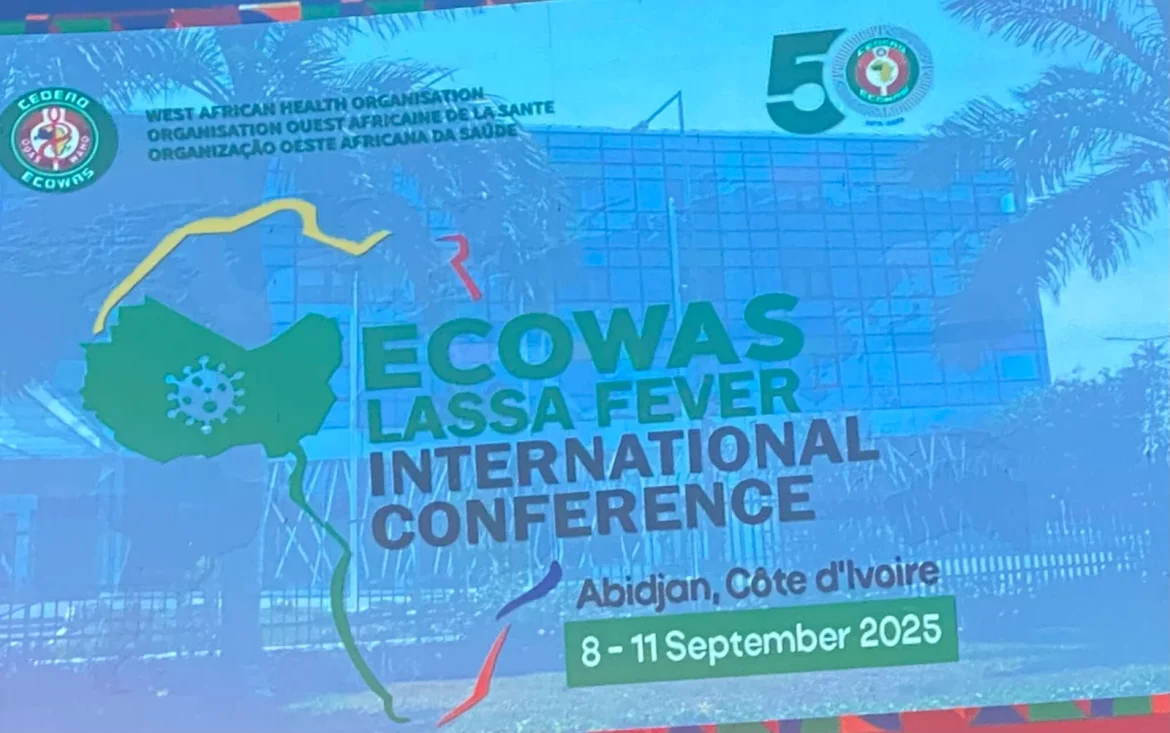By Iyemah David
West African leaders and health experts have called for stronger regional co-operation and African-led solutions to tackle Lassa Fever and other emerging
infectious diseases.
They made the call at the Second ECOWAS International Conference, which opened on Monday in Abidjan.
The theme of the conference is: “Beyond Borders: Strengthening Regional Cooperation to Combat Lassa Fever and Emerging Infectious Diseases.”
It seeks to reaffirm regional commitment, mobilise political will, and drive collective action against Lassa fever and other emerging infectious diseases.
President of Cote d’ Ivoire Alassane Quattara expressed the country’s commitment to supporting regional health security.
Ouattara, who was represented by Mr Robert Beugré Mambé, Prime Minister of Côte d’Ivoire, highlighted the heavy social and economic toll of recurring epidemics, including Lassa fever, Ebola, monkeypox, and cholera.
“In April 2025 alone, over 65 epidemics were recorded in Africa, with cholera causing more than 6,000 deaths, while Lassa fever in West Africa is responsible for nearly 300,000 infections and 5,000 deaths annually,” Quattara said.
He emphasised that no country could face these threats in isolation, calling for regional solidarity and coordinated action to prevent outbreaks from spreading across borders.
The president praised the West African Health Organisation (WAHO) and partners for their technical support, urging actionable measures focusing on prevention, hygiene, and disease control.
From a national perspective, Nigeria’s Coordinating Minister of Health, Professor Muhammad Ali Pate, called for solutions to Lassa fever to be African-led rather than reliant on external sources, stressing that the disease was local to West Africa.
Prof. Pate highlighted Nigeria’s ongoing efforts, including expanding laboratory networks, training frontline health workers, strengthening case detection and management, and reinforcing community engagement.
“This disease is local to us. The solution is not going to primarily come from the global (North),” he said.
He urged governments, scientists, and civil society to collaborate on diagnostic studies, vaccines, and research.
He also emphasised that regional data sharing and preparedness must complement national efforts to ensure long-term resilience.
Speaking virtually, Ambassador Amma Twum Amoah, AU Commissioner for Health, Humanitarian Affairs and Social Development in Addis Ababa, described Lassa fever as a complex socio-ecological threat requiring multisectoral action.
According to Amoah, Nigeria bears the heaviest burden, with recent data showing 1,171 suspected cases, 209 confirmed cases, and 53 deaths between January 12–26, 2025, representing a case fatality rate of 18.3 per cent.
She praised Africa CDC and the African Medicines Agency (AMA) for their efforts in improving surveillance, strengthening laboratories, and accelerating vaccine and treatment development.
She stressed that stronger regional co-operation and pooled resources were critical to detect early outbreaks, contain them, and strengthen health systems across West Africa.
The conference, attended by ministers, health officials, researchers, and technical partners from across ECOWAS, aims to develop actionable recommendations on prevention, rapid response, and regional co-operation, while fostering innovation in diagnostics and vaccines.
The combined messages from Côte d’Ivoire, Nigeria, and the African Union signalled a united regional approach to tackling Lassa fever, with an emphasis on African leadership, research, and solidarity to protect populations and strengthen health security across West Africa.




